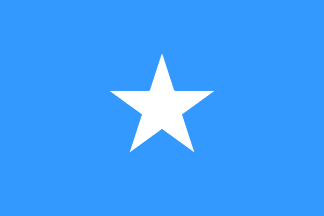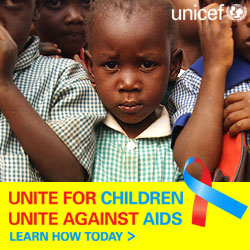Things continue to progress or digress in Somalia. President Yusef has forced PM Gedhi to resign. He got the constitution changed so he can appoint a non-parliament member to the the PM office. We are still waiting. Meanwhile, Mogadishu continues to have outbursts of violence. The head of the UN says no to the idea of a UN peace-keeping force. But the UN security council disagrees. The AU is doing nothing and Ethiopia is expanding their aggression in the Ogaden. Ethiopia and the opposition-supporting Eritrea are make war noise, and Somaliland and Puntland are battling over borders too.
So apparently this is the point when a group of Somali religious leaders decide its time to meet and make a statement calling for peace. A little late. Better late than never? You decide. Below is their statement:
===========================================
Full text of a statement issued by Somali religious leaders at the conclusion of a two-day meeting in Hargeisa, the capital of the self-declared republic of Somaliland:
We religious leaders from Somaliland, Puntland, and South-Central Somalia meeting in Hargeisa, Somalia, on 17 - 19 November 2007, with support from the Religious Leaders Peace Initiative in the Horn of Africa, with a goal to discuss and find ways in which the religious leaders and women can contribute to resolving conflicts among the Somalis
We have challenged ourselves to use our talents and powers to help our people find effective solutions to the problems of poverty, hunger and diseases; contribute more actively to the removal of socio-political conflicts, civil wars and sub-regional disputes and displacement of the people, and work effectively to enhance human and people's rights, equality and justice.
We want to appreciate the various opportunities created by Islam for people to come together to share ideas and feelings to include at least five praying times a day, a weekly Friday prayer gathering, twice a year Eid meetings where people of Islam come together to integrate ideas, and the final Hajj that the Prophet made and the speech on the gathering emphasizing peace and security.
We commit ourselves to convey the message that Islam is a religion of peace, and accepts other religions, and further commit ourselves to have this message supported by concrete actions, and demonstrate true love and brotherhood among ourselves as Muslims and the Somali people, and to the protection of life and property.
We deplore that the East African region has faced turmoil and conflicts, and that these have impacted negatively on the Somali people who have remained poor, underdeveloped, have had to migrate from their homes into being refugees and IDPs. We further deplore that the conflicts have also generated psychological problems.
We further regret that because of the conflict, the Somali natural resources are being exploited and wasted, and toxic materials dumped on the land and seas, thus degrading the environment.
We pledge from now henceforth to be more active peacemakers and commit ourselves to the process of peace-building to reverse the conflict situation that has affected us as Somali people, by participating in peace processes, and make contributions that advance the cause of peace.
We accept the challenge to advocate for the voiceless and the vulnerable, the cause for peace, the plight of the displaced persons, the marginalized and excluded groups, and upholding human rights and dignity.
We commit ourselves to advance open dialogue, sharing of experiences and information and exchange of ideas on peace and coexistence to the benefit of all Somali people. We further commit to advocate and to raise awareness through the media, research and publications.
We appeal for support to establish, empower and build the capacity of structured regional institutions that target religious leaders from the Somaliland, Puntland, and South and Central Somalia, and further call for the empowerment of religious leaders in conflict resolution, meditation and reconciliation through seminars, workshops and trainings.
We seek to establish partnership and networking relationships with international organizations and agencies for the cause of peace.
We commit ourselves to mobilize our social, moral and spiritual resources, and further seek financial and human support from willing and interested partners as we move toward building substantial peace.
We strongly call for an end to tribalism that fuels conflicts and increases the suffering of our people. We further call all the concerned and relevant stakeholders to put public interests ahead of personal and vested interests.
In conclusion we express our deep appreciation and thanks to the peace and solidarity mission of religious leaders from Rwanda, Uganda, Sudan and Kenya. We also thank ACRL-Religions for Peace, the working group of the Religious Leaders Peace Initiative on the Horn of Africa, and FCA Finland for their support and Government of Somaliland for providing space and opportunity for this historic meeting. We express gratitude to the International Horn University, Center for Community Development and Research, for hosting this event.
May the Almighty Allah help us!
Signed by Somali religious leaders and the leaders of the mission




